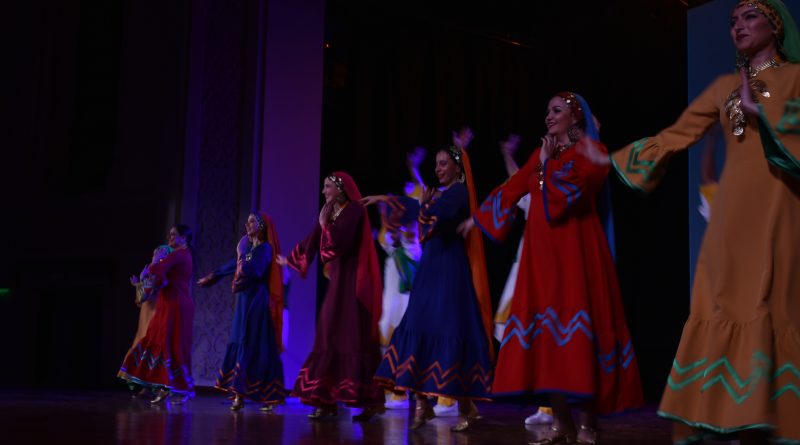Battling Injustices: One Dance at a Time
Photo Taken By: Amira Gamil
The sounds of the glittering ornaments shaking on the dancers’ waists, and the delightful traditional Egyptian music ringing through Ewart Hall, evoked nostalgia for an art that has remained a powerful witness to society’s ever-changing nature throughout the years.
The AUC Alumni Folklore Troupe hosted the fourth edition of their Reviving The Art performance last Saturday, February 24, at the AUC Tahrir Cultural Center.
The troupe aims to preserve Egyptian folklore, which reflects key milestones in society and tells the stories of social dynamics during different times through the dances. For example, the dance of Hagalla originated from Fayoum, which is considered one of the few places in Egypt where bedouins and farmers lived peacefully together.
“Art breaks a lot of barriers, the barriers of language and distance and hate. So when you present art, you address a person’s emotions so it automatically resonates with them,” said Pinky Selim, AUC Alumna with a Bachelor in Accounting and the Folklore Troupe’s Founder, Choreographer, and Creative Director.
Activism through art
The troupe dedicated all the proceeds to AUC’s Palestinian Scholarship Fund.
“We are showing our country’s folklore while also raising awareness. By only writing on the invitation that the proceeds are dedicated to the Palestinian Scholarship Fund, we are making a statement,” says Raimonda Raif, executive director of the Alumni Engagement and AUC Fund.
The intersection of art and activism remained a controversy during the recent global rage over the escalations in Gaza, between concerts being canceled and others resuming to raise awareness.
Associate Professor and Sociology Unit Head Helen Rizzo described the social dynamics when it comes to consuming news and information as “echo chambers” where we all suffer from evident cases of confirmation bias which limits our scope and knowledge of the world.
On the other hand, she argued that these echo chambers do not exist with stories told through art, as they have a privilege of “showing our common humanity,” which could help spread the message in a more persuasive manner than through policies and the traditional news dissemination process. For Rizzo, art helps societies relate to each other more as it draws on our nature of being emotional and empathetic.
“For example, novelists and poets whose stories or poems deal with class, race, and gender inequalities and discrimination humanize the negative effects of these on individuals and groups who are subjected to societal oppression,” she clarified.
Selim believes that by “addressing the humanity inside the person” through art, the audience is also more lenient and can listen to different ideologies and social beliefs.
Selim reflected on the sight of international students’ faces in the crowd at the performance. “You can present art to send a message about Palestine or Sudan or any country that is suffering. I can present something beautiful just to get them [foreigners] thinking or questioning,” she commented.
The ability of art to reach people from various backgrounds and beliefs is why Selim feels passionate about raising awareness about current issues through the troupe’s performances, rather than putting the troupe’s activities on hold.
“It’s not an option for us to stop practicing our art just because there is a catastrophe happening. It’s our job. It’s no different than any other job,” she added.
However, Shahd Othman, a Palestinian Architecture student at AUC, shared a different perspective with The Caravan.
“I know artists’ intention could be fundraising, but the idea that people are going and dancing doesn’t sit right with me, even if the cause is very beautiful. The fact that I’m partying just because this money is going to Palestine doesn’t sit right. I would rather collect money in other ways instead, out of respect for the people dying,” she commented.
Despite being personally against raising awareness through concerts, Othman praised the “power of art,” referencing the recent songs dedicated to Palestine that received global recognition.




